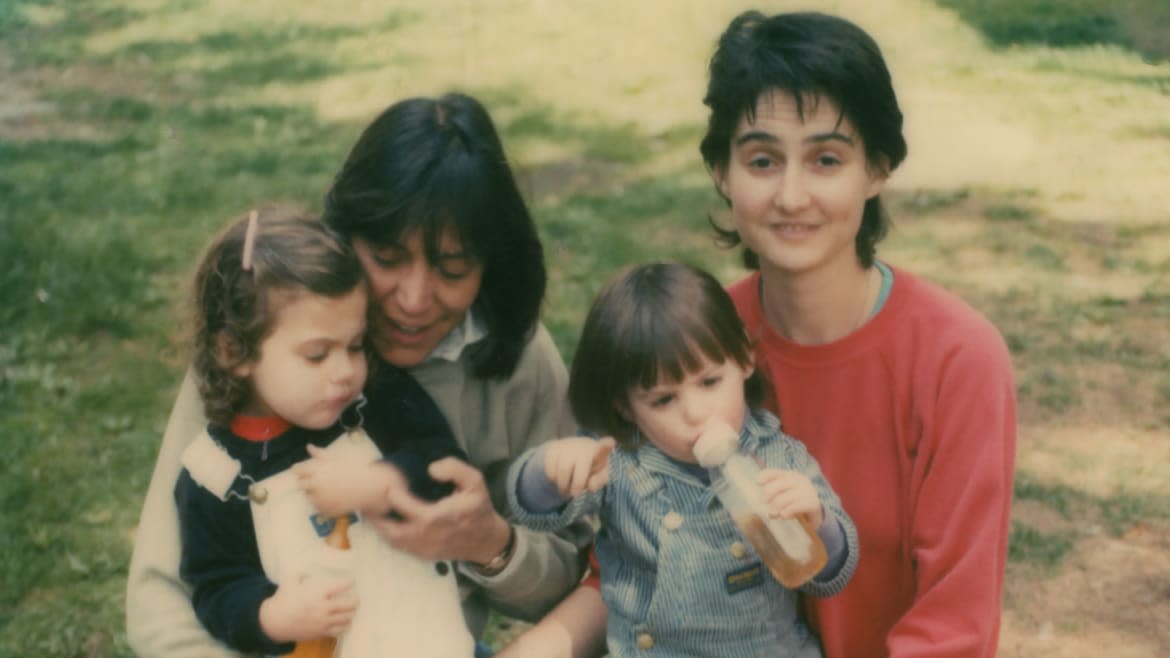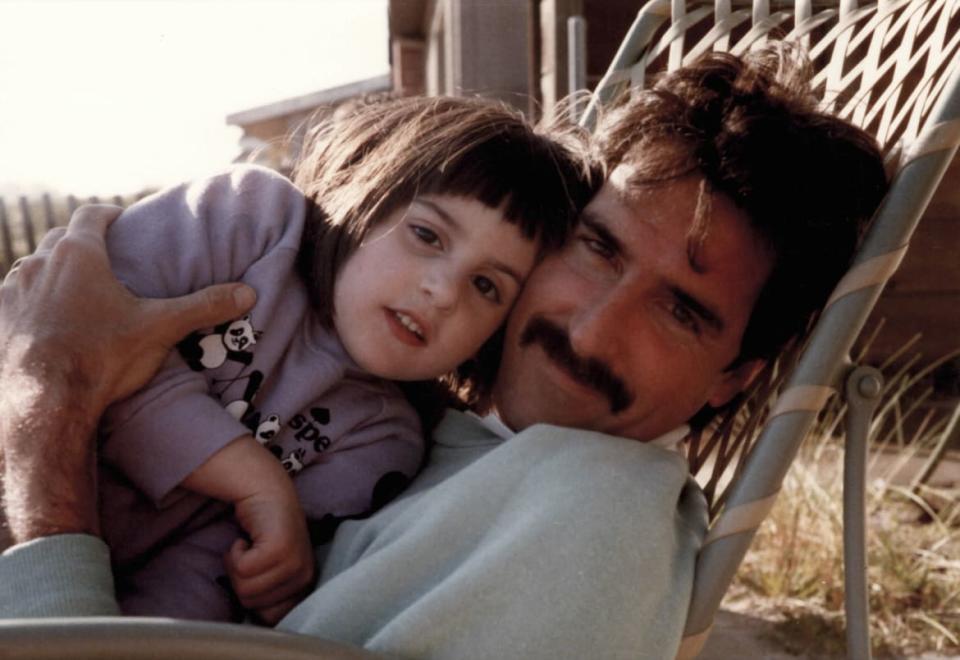The Explosive ‘Nuclear Family’ Finale Reveals Outcome of Lesbian Moms’ Battle With Sperm Donor

- Oops!Something went wrong.Please try again later.
Over the years, director Ry Russo-Young has explored the custody battle that upended her childhood through multiple mediums—including a play inspired by Little Red Riding Hood, in which she and both her mothers, Robin Young and Sandy Russo, are the cloaked damsels and her mothers’ sperm donor, Tom Steel, is the wolf.
A powerful attorney in the gay community, Steel had seemed like a perfect choice to be Russo and Young’s sperm donor as they tried to conceive their second child. When Russo-Young was 9 years old, however, tensions arose over visitation and Steel sued her parents for paternal rights—effectively wielding anti-gay legislation as a cudgel over the women he’d helped to build a family, even though he was gay himself. Steel ultimately lost the suit and dropped his appeal as he struggled with health complications from AIDS, which at the time was a death sentence.
Russo-Young’s new project, the three-part HBO docuseries Nuclear Family, finds the director revisiting unanswered questions that have loomed over her for decades. The now-deceased Steel appears in several home movies in her docuseries, but he’s absent in her old, fantasy-inspired rendering of the court battle and its traumatic fallout. Disarming in its earnestness and bracingly vulnerable, this accomplished series is Russo-Young telling her story on her own terms. But her proximity to the subject, however understandable, limits her perspective.
Margaret Qualley Is Phenomenal in Netflix’s ‘Maid’
Russo-Young celebrates the significance of her mothers’ choice to start a family at a time when same-sex couples were rare, and does an excellent job of situating her family’s story within the context of the civil rights battles queer activists were fighting in the 1970s. Still, Nuclear Family never fully explores the validity of its titular institution; the series gestures at the queer community’s embrace of more flexible family structures but seems to take Russo and Young’s endorsement of the nuclear paradigm at face value.
Steel’s lawsuit action, Young and Russo emphasize, was not a mere plea for visitation but would have granted Steel the right to essentially rearrange their family’s structure. The couple had always planned to allow their daughters to connect with the men who helped make them, but they had also chosen a different sperm donor for Ry than they had for their first daughter, Cade, for a reason. As Russo herself puts it, they “didn’t want any one donor to have such a role—potential power.”
Perhaps the most reprehensible aspect of Steel’s lawsuit, besides the fact that he apparently chose to litigate rather than even initiate a preliminary conversation to try and reconcile out of court, was the toxic logic upon which the action relied. Steel’s argument for paternity rested, as so many bigoted arguments do, on anti-gay and misogynistic logic—on the idea of biological determination as the end-all, be-all.
In asserting himself as a “father” Steel also argued that Russo, who did not give birth to her daughter and therefore retained no legal rights as a mother, had no maternal claim. For years she was forced to watch the case unfold from outside the courtroom, peeking through the door while standing on a step stool.
It’s hard to blame Russo for refusing to mask her contempt for Steel. In one of the film’s most tense moments, Russo-Young confronts her parents about an estranged friend’s claim that they diminished Steel’s presence in her life to bolster their court case. The truth, she said, “Would have been to say to you, ‘We loved him, you loved him, he was important to you, and then he dropped a nuclear bomb on our heads and now we hate him.’” When asked whether they cut Steel off for her sake or their own, Russo tells her daughter “you” before adding, “all of us.”
Russo and Young faced traumatizing, systemic discrimination as parents—as have lesbians and all queer people across generations. Distinct from that fight, however, is a broader moral question—a thread Russo-Young tugs at but seems hesitant to fully unfurl.
As Shannon Keating notes in an excellent piece about the docuseries for BuzzFeed, feminist scholars have argued against traditional family arrangements that suggest children “belong” to their parents. The family unit Russo and Young struggled so hard to protect rejects patriarchy in terms of male dominion, but retains its faulty sense of ownership—of children as commodities to be closely guarded and cultivated. Keating asks: “Is the ability to have children deemed exclusively ‘your own’ a human right?”

Ry Russo-Young and Tom Steel
That said, the most striking aspect of Russo-Young’s story is her determination to focus on the love she and Steel shared, even if they were never able to reconcile before his death—and Russo’s proclamation that despite everything Steel put her through, she’s proud of her daughter “for loving him.”
Unlike some of Russo-Young’s previous projects, in which she addressed Steel in absentia, Nuclear Family includes portions of a video Steel made for her ahead of his death—in which he offers her his side of the story and emphasizes his enduring love for her. As much as this series struggles to establish enough distance to get a bird’s-eye view of its subject, it is an illuminating portrait of a director who’s still piecing together her story—and who acknowledges, even relishes, the fact that the pieces might never quite fit.
Get our top stories in your inbox every day. Sign up now!
Daily Beast Membership: Beast Inside goes deeper on the stories that matter to you. Learn more.

